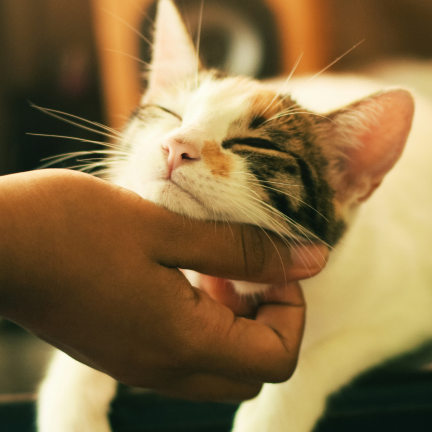Blog:Feline Vaccinations

Other than for rabies, which is state mandated, vaccination protocols vary from animal hospital to animal hospital. In addition, for some vaccines, the duration of protection is far longer than previously recognized. Therefore, as cats have assumed a different role in the modern family and risk factors have changed the vaccination schedule, Westchester Veterinary Clinic seeks a compromise between maximizing immunity to disease and minimizing the possible short and long-term side effects to cats from vaccines.Vaccines have proven important in preventing serious disease in cats.
Vaccinating Your Cat Keeps Them Healthy and Protected Against Preventable Diseases
Our current vaccine recommendations are based on up-to-date research, the incidence of disease in our area, and the risk of exposure of your cat to the infectious agents. Depending on your cat’s medical history and need for vaccinations, certain shots may be administered during your cat’s wellness exam to make sure your cat is up-to-date on all his or her vaccines. Our vaccine protocol includes the “core” vaccines and should not be interpreted to mean that other protocols recommend are not valid.
Feline Core Vaccines:
- Feline Distemper (FVRCP): Rhinotracheitis, Calicivirus and Panleukopenia (indoor-only cats).
- Rabies (indoor and outdoor cats)
- Feline Leukemia Virus (FeLV) (indoor and outdoor cats)
Rhinotracheitis: Triggered by the common feline herpes virus, symptoms include sneezing, runny nose and drooling. If left untreated, this disease causes dehydration, starvation and can be fatal.
Calicivirus: Feline calcivirus, an upper respiratory disease, is shed in discharges from the eyes, nose, mouth, feces, and rarely urine. Symptoms include oral ulcers, fever, lethargy, stiffness, joint pain, muscle aches, neurologic symptoms, and rarely seizures. FCV has been associated with persistent gingivitis in chronic carriers. FVR and FCV vaccines lessen disease but do not prevent infection, viral shedding, or the carrier state.
Panleukopenia: Also known as distemper, this common disease is easily spread from one cat to another. Symptoms include fever, vomiting and bloody diarrhea. The disease progresses rapidly, requires immediate medical attention and can be fatal. It is common in kittens who have not yet been vaccinated.
Rabies: Rabies virus causes fatal disease in many mammals, both wild and domestic, including dogs, cats and humans. The virus enters through a bite wound from a rabid animal, or via exposure of mucous membranes (eyes, nose, mouth) to infected blood or body secretions. The virus then spreads to the nervous system (causing symptoms like anxiety, aggression, disorientation, incoordination, paralysis, seizures, hyper salivation, difficulty swallowing) and the salivary glands (enabling transmission to bite victims). Due to the seriousness of the disease, vaccination is mandatory by Minnesota State law.
Feline Leukemia (FeLV): FeLV can be transmitted between infected cats with the transfer of salavia or nasal secretions. The disease caused by this virus is in the form of cancer of the blood cells.
Feline Non-Core Vaccines include:
- Feline Immunodeficiency virus (FIV)
- Feline Herpesvirus (FVR and FHV-1)
Feline Immunideficiency virus (FIV): FIV attacks the immune system of cats, much like the human immunodeficiency virus (HIV) can attack the immune system of human beings. FIV is transmitted primarily through saliva (bites) of an infected cat where the infected saliva enters the other cat’s bloodstream. Outdoor cats are more likely to be exposed to risk of acquiring FIV.
Feline Herpesvirus: Feline viral rhinopneumonitis (FVR) and feline herpesvirus type 1 (FHV-1) are the most common causes of upper respiratory infections in cats. Symptoms include sneezing “attacks”, discharge from the eyes and nose, conjunctivitis or pink eye, and congestion. The most common cause of infection is through contact from an infected cat’s eyes, mouth or nose.



